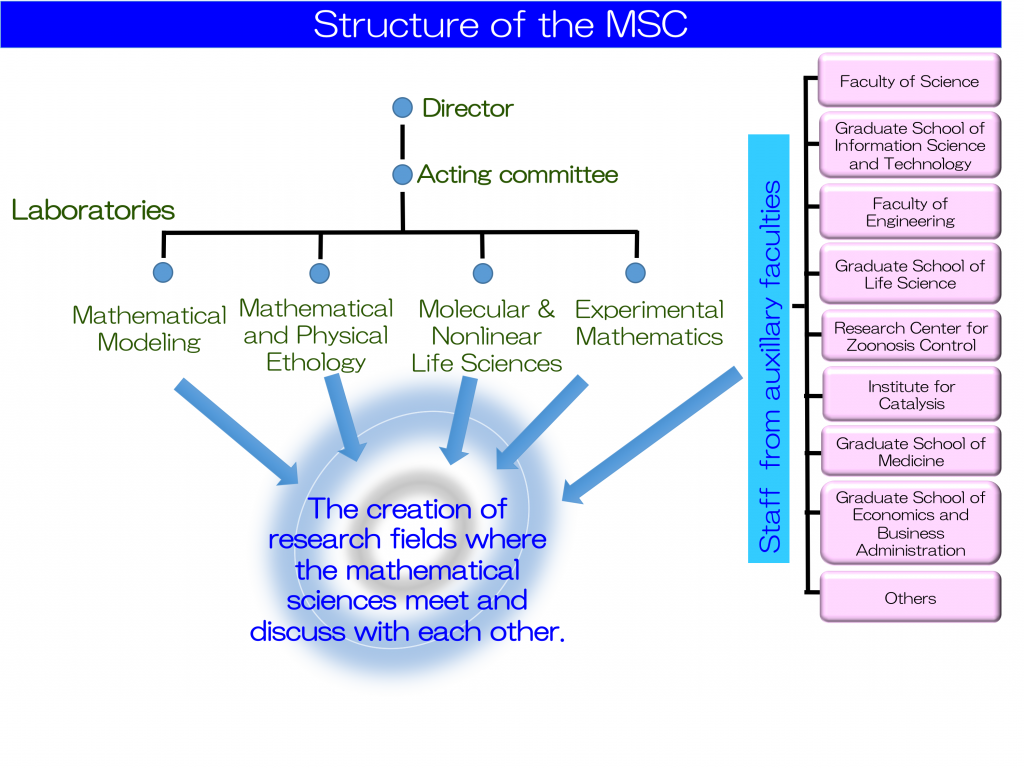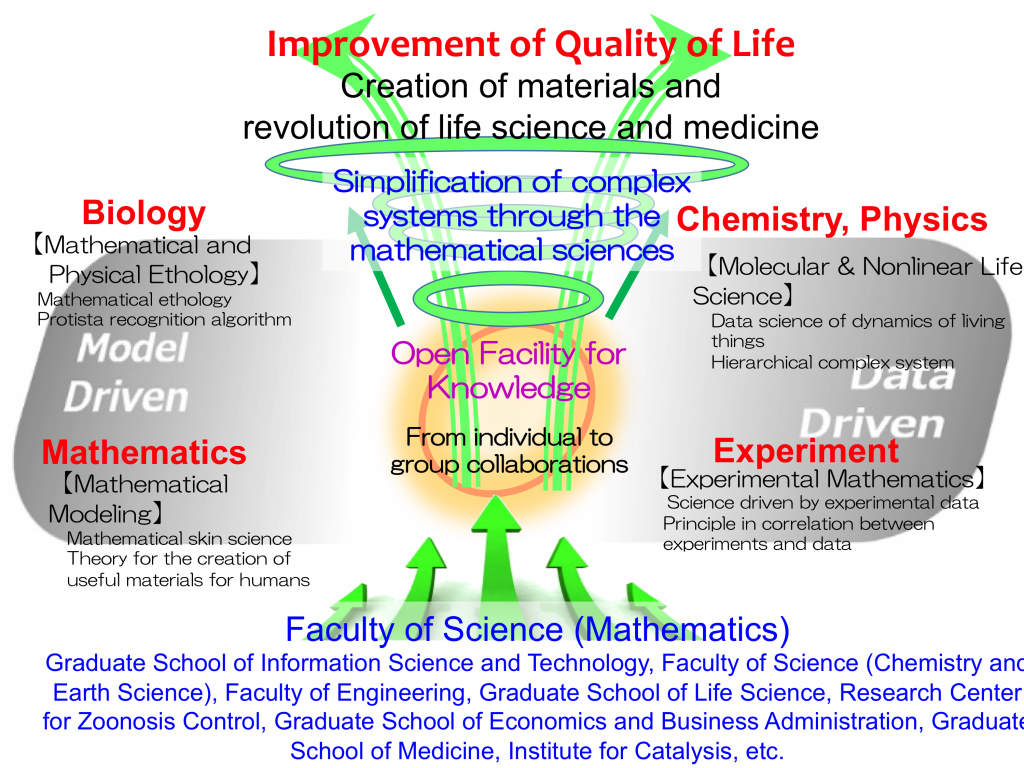Structure of the MSC
The MSC is run by the director and its acting committee that consist of professors from the RIES and other departments of Hokkaido University. Four laboratories constitute the basic structure of MSC: (i) Laboratory of Mathematical Modeling, (ii)Mathematical and Physical Ethology Laboratory, (iii) Molecule & Life Nonlinear ScienceLaboratory,and (iv) Experimental and Mathematical Laboratory. Laboratories (i) and (ii) focus on extracting the essences of complex phenomena. Laboratory (iii) aims to find out logics and laws in terms of data science. The fields that the four laboratories do not cover are supported by other faculties in Hokkaido University, which include Faculty of Science (mathematics, chemistry and Earth Science), Graduate School of Information Science and Technology, Faculty of Engineering, Graduate School of Life Science, Research Center for Zoonosis Control, Graduate School of Economics and Business Administration, Graduate School of Medicine, and the Institute for Catalysis (36 investigators including 24 professors, 10 associate professors, one lecture, and one assistant professor).In this way, the MSC aims to promote collaborations between mathematics and other fields to both the domestic and international levels.
Directions and Aims of the MSC
Open facility for knowledge
From individual to global collaborations
Mathematics is a common language in sciences that is applicable to various fields regardless of the characteristics of the subject. In view of this, the faculty members of RIES and the department of Mathematics at Hokkaido University have been asserting the importance of mathematics and mathematical science in inspiring scientific breakthrough, and in providing a broad viewpoint for the problems. These faculties have been promoting collaborations between different fields. In addition to the above efforts, the MSC also creates new types of collaborative investigations in which complex problems in societies are solved, by collaborating with the investigators working in universities and companies.
The MSC regularly holds lectures and seminars that can promote collaborations between mathematics and other fields. The MSC forms networks that connect research institutes in Europe, the United States and Asia, and searches topics that lead to the creation of novel materials, medicine and imaging techniques. The MSC encourages mathematical investigations that inspire breakthroughs in the various fields. At the same time, the MSC fosters young leaders in the next generation who have wide viewpoints to find out valuable problems in various fields. Furthermore, the MSC actively outreaches for the fields where collaborations with mathematics are not well established yet, such as economics, psychology and jurisprudence, and finds out possibilities of collaborations between humanities and science. The MSC aims to become an accessible center that fertilizes our societies.


